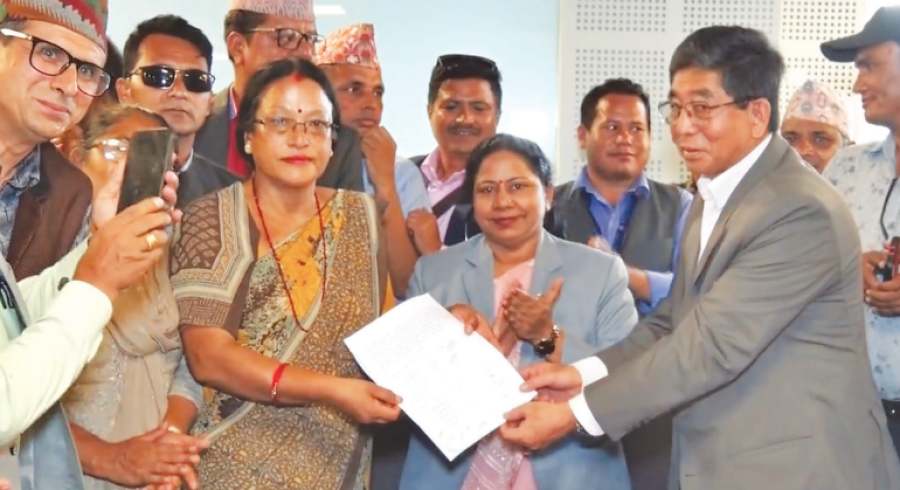National
Agitating teachers end their protracted protest
The strike ends as the government agrees to allow relief quota teachers to compete in internal tests for permanent postings.
Binod Ghimire
The agitating relief quota and early childhood development (ECD) teachers ended their two-week-long protest on Friday after the government agreed to allow them to compete in internal tests for permanent postings.
Relief quota teachers were also in the agitation led by the Nepal Teachers’ Federation against several provisions of the School Education Bill registered in the House of Representatives on September 13. Though the federation called off its Kathmandu-centric agitation after sealing a six-point deal with the government on September 22, the relief quota and the ECD teachers refused to abide by the agreement and continued protesting.
They had accused the federation of betraying them by signing the deal, leaving their concerns aside.
The government and the federation had agreed that 75 percent of the temporary and relief quota teachers would be allowed to take part in internal competitions for a permanent posting against the 50 percent proposed in the bill. The relief quota teachers had been demanding that all 40,000 of them be allowed to compete in internal selection exams or to continue teaching until their retirement age of 60.
“We have withdrawn our agitation after the government agreed to our demands,” Khem Raj Adhikari, chairperson of the Relief Quota Teachers’ Association, told the Post. “We will return to our work from Sunday.”
Relief quota and the ECD teachers are individuals employed on a contractual basis by the local units to address the shortage of teachers at community schools. There are around 40,000 such teachers.
After several rounds of negotiations, the government dialogue panel led by Minister for Education, Science and Technology Ashok Kumar Rai reached a five-point deal which included allowing all the teachers under the temporary quota to sit in the internal competition for a permanent posting, one time. “Those who don’t qualify in the internal competition will be given gratuity based on their service period,” stated one of the points in the agreement.
The bill will be revised through amendment proposals after it is presented in Parliament. Talking to the media, Rai said there had been an agreement to address the teachers' demands through a revision in the bill. "The agreement will also be presented in the House," Rai told reporters.
If the vacant positions of teachers are filled through internal competition, it will block the entry of freshers in teaching. Talking to the Post, Bidya Nath Koirala, professor at Tribhuvan University, said there must be open competition in the teachers' hiring. "The existing temporary teachers should be given a few years to prepare for the open competition if they want but hiring through internal competition is wrong," he said.
As per the agreement, the government has agreed to create teacher jobs for grade 11 and 12 based on the number of students. So far, the government has paid for two teachers in each public school without permanent posts.
Though successive governments since the promulgation of the new constitution had been promising to pass a federal education law, it took eight years and several failed attempts for the new education bill to land in Parliament.
However, it has met with widespread controversy. Even as the teachers have withdrawn their protests with the deal, discontent continues. The local governments have deep reservations over the provision to revive district-level education offices.
The Cabinet, in the first week of August, had approved the bill to be registered in Parliament. The bill met severe criticism, particularly from the private sector, as it envisioned turning private schools into trusts within five years.
In the face of strong opposition from the schools, the government decided not to send the bill to Parliament. It was then revised, specifically removing the provision that had attracted objections from the private sector. It was registered in Parliament earlier this month.




 9.89°C Kathmandu
9.89°C Kathmandu














